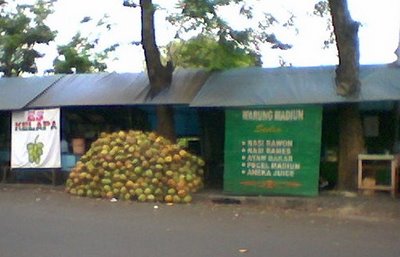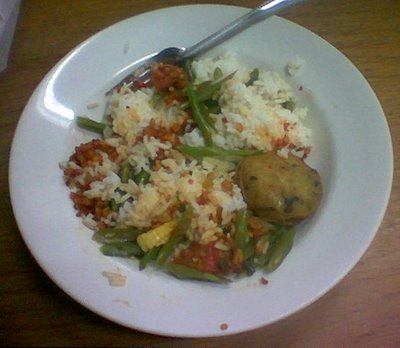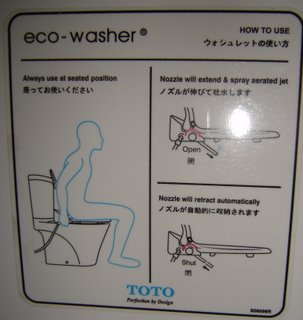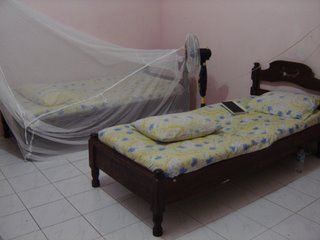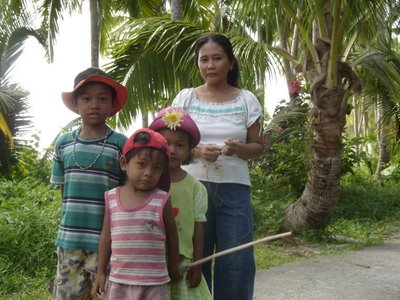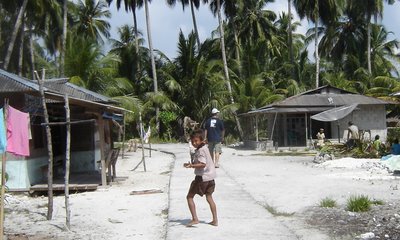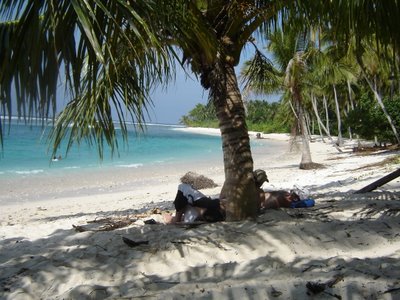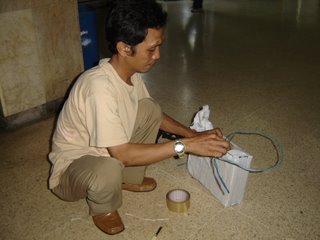
What happened is, we ended up accidentally negotiating with two different people to do some part-time housecleaning for us. And I never got back to the one we didn't choose, Ibu Sofia, who lives down the street. I said I would, but I didn't because - well, because I'm weak, I'm shy, my Indonesian isn't very good, I don't like bearing bad news, and Ibu Sofia seems a tad high-strung. I figured I'd run into her on the street, but I didn't. So yesterday, which was like a month later, she saw Chad and gave him grief about how she'd been waiting to hear from us.
I imagined maybe there'd be this nice little scene when I went down the street with my fruit basket - a scene of forgiveness, and she would invite me in, and I'd say "I happy go house Ibu Sofia" or whatever, and we'd chat, and we'd be friends.
It didn't work out quite that way, of course. As usual, there seemed to be a million people hanging around, taking in the whole scene. So I just said I'm sorry and probably a few things that made only marginal sense, and she took the basket without really looking at it, and that was that. But she did take my hand and smile.
And who knows ... maybe mangoes and cheese straws and a papaya will win her over. I mean, they looked like really good mangoes. They'd win me.

